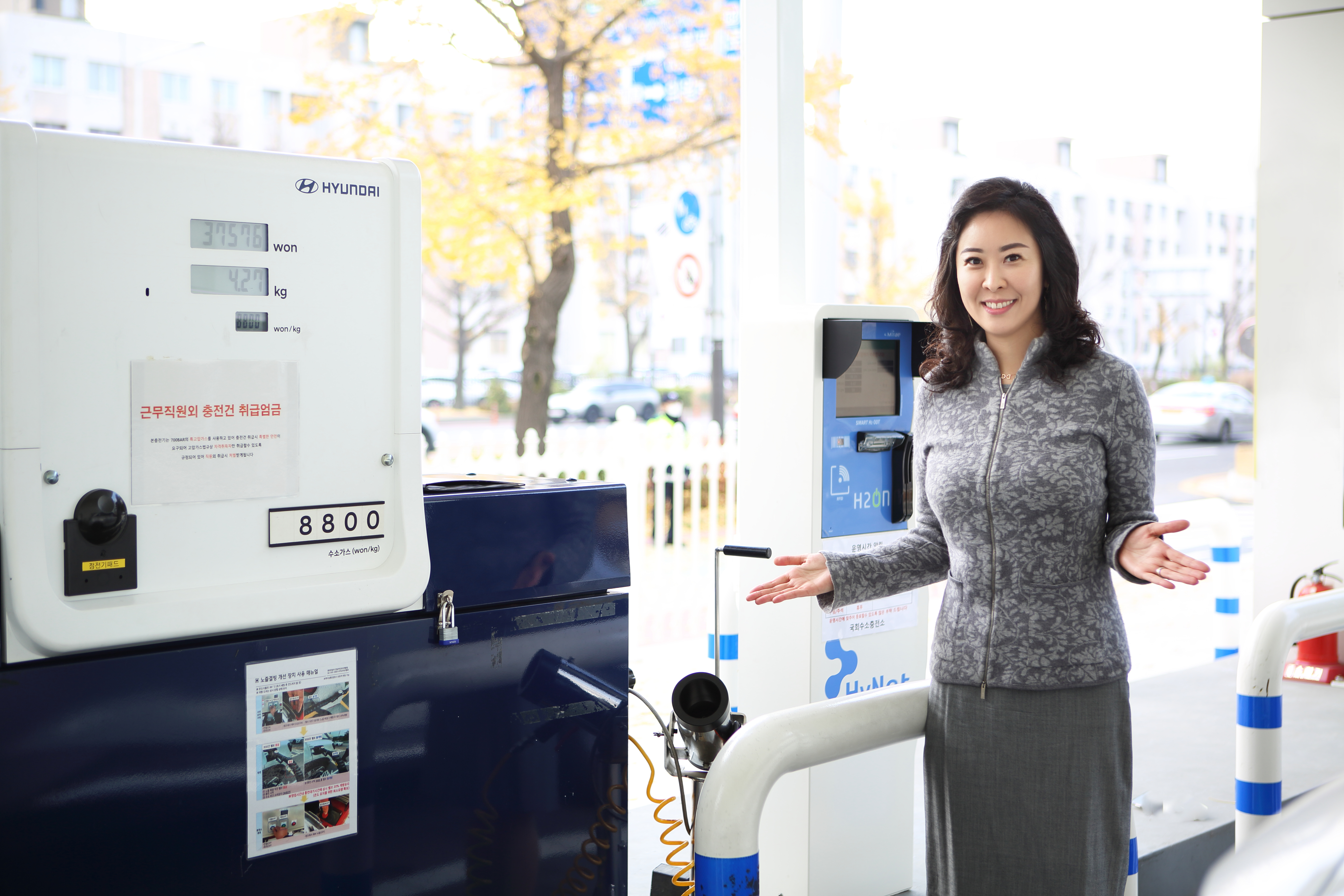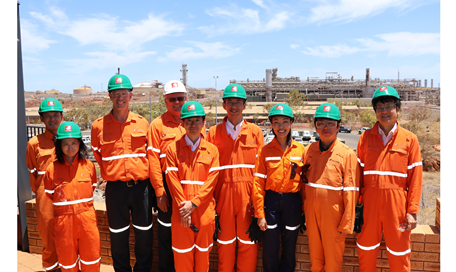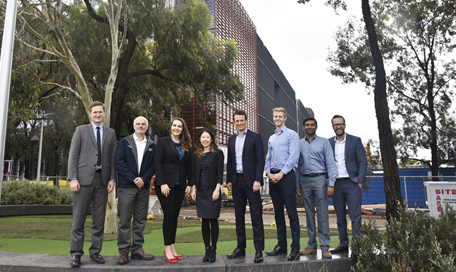Hydrogen demand
A consortium that includes Woodside has rolled out its first hydrogen refuelling stations for vehicles in Korea.
The HyNet consortium, which includes Woodside, passed an important milestone in the second half of 2020 with the opening of its first hydrogen refuelling station in Korea.
HyNet (or the Hydrogen Energy Network Co. Ltd.) is a Special Purpose Company that aims to deliver 100 such vehicle refuelling stations in Korea by 2022. The first five stations built by HyNet successfully opened between August and October at locations across the country.
Korea Country Manager and Chief Representative Sandra Park has visited some of the stations and spoken with drivers of hydrogen fuel-cell vehicles (FCEVs).
She says feedback has been encouraging.
“Drivers are very satisfied with the performance of their vehicles,” Sandra reports.
“They are pleasantly surprised by the running costs and proud to be improving air quality. Their only request is for more stations.”
This demand for more hydrogen refuelling stations is the result of a strong push by the Korean Government to establish a hydrogen economy.
Earlier this year, the Government set targets of 200,000 hydrogen vehicles and 450 hydrogen refuelling facilities by 2025.
These ambitious numbers are a big step up from the approximately 10,000 vehicles and 50 refuelling stations in Korea today, and one of the reasons that Korea is a focus for Woodside’s New Energy team.
“The government is stimulating a hydrogen market in Korea,” says Owen Davis, a member of that team.
“We have a successful history and great relationships in Korea. It’s one of our focus markets and HyNet plays an important role.”

The ambitious government targets, and the presence of world-leading hydrogen technology providers, is leading to strong customer demand and rapid growth in hydrogen vehicle numbers in Korea.
HyNet is working to address the resulting need for more refuelling stations.
Woodside’s investment into HyNet provides valuable opportunities for the company to work alongside 12 other companies (including KOGAS and Hyundai Motor Company) that are leading the hydrogen economy in Korea and beyond.
Moreover, it allows us the opportunity to gain insights into demand growth in the Korean market.
Owen says Woodside is the only non-Korean resource participant in HyNet.
“Our investment in HyNet has demonstrated Woodside’s strong initiative and dedication for a Korean hydrogen market and to explore options for low-carbon energy,” he explains.
Sandra notes: “It’s been a team effort to get us to this point.
“We look forward to continuing to build our position in Korea and making a difference through our investment in HyNet.”
Read the full Q4 2020 issue of Trunkline here.



